We live in the era when the social pattern is dominated by social media, and generally, we generally are no longer focused on face-to-face interaction with people around us. In response to that, designers and architects create street furniture for conversation and rest that help people engage with each public space, as well as with each other.
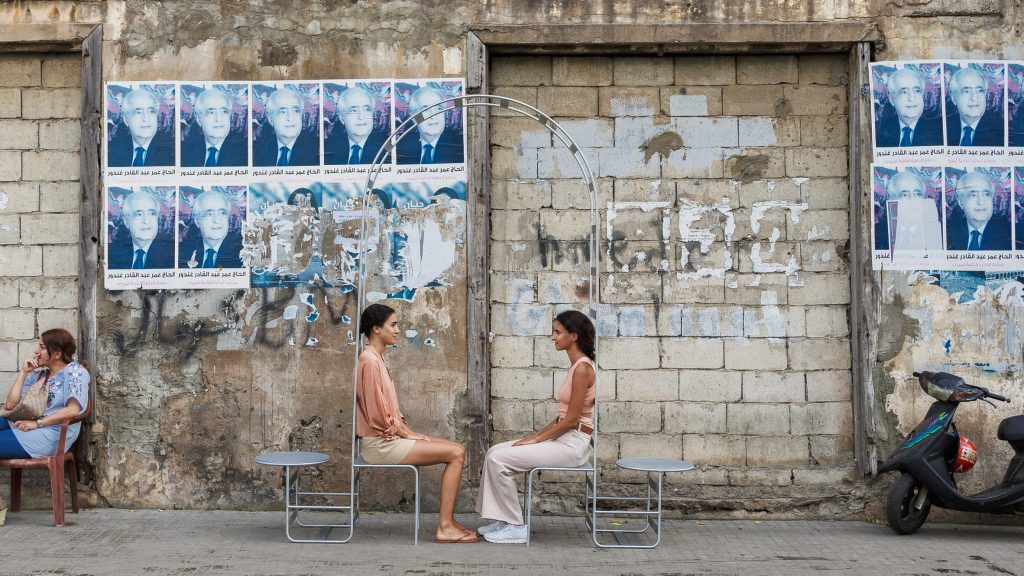
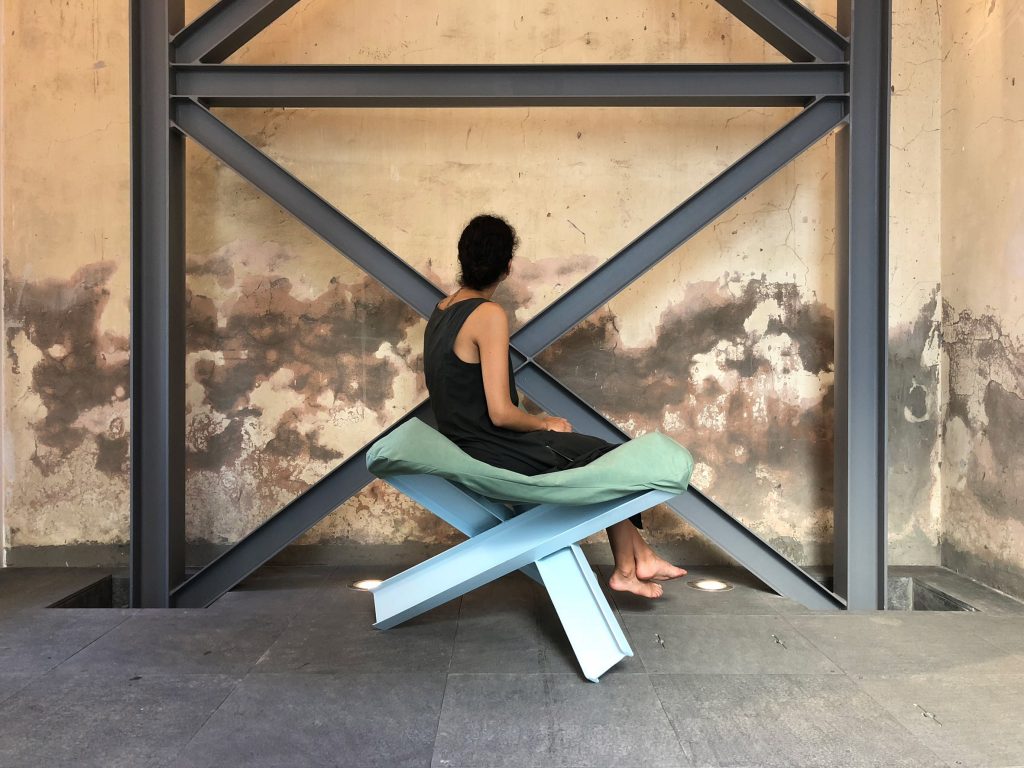
Holidays in the Sun by T Sakhi
Aiming to make public spaces of Beirut more engaging, the multidisciplinary studio T Sakhi based in Beirut and Milan has developed a series of hybrid street structures that seek to enhance the streetscape and provoke new modes of human interaction. The founders of the studio, Lebanese-Polish sisters Tessa and Tara Sakhi, claim that most public spaces in Beirut are privatized, leaving locals without a possibility to enjoy public spaces, and the city centre is filled with security and military barricades due to Lebanon’s current political instability.
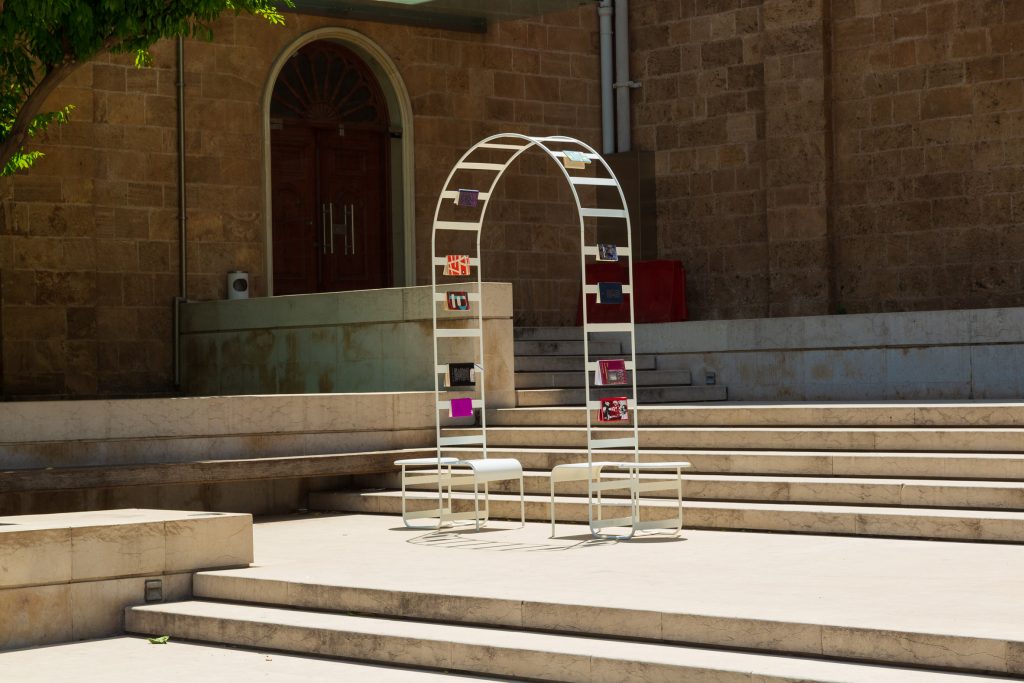
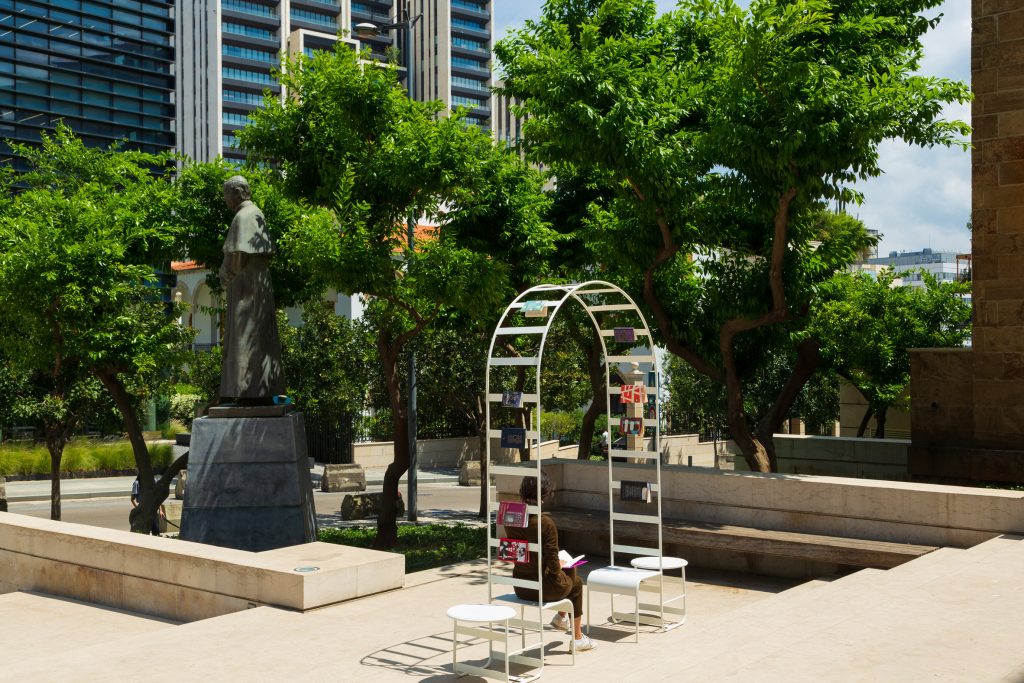
Lost in Transition by T Sakhi (also header image)
To change that, the sisters have introduced two interventions that provide places to sit down in the city.
Lost in Transition is an urban object-space comprised of two chairs connected with an arch, which enforces a physical face-to-face interaction. At the same time, the periphery stools focus on a solitary moment for writing, reading or enjoying the surrounding. The urban chair is versatile, and the numerous spatial configurations allow for multiple uses, whether it is eating lunch with colleagues or reading alone.
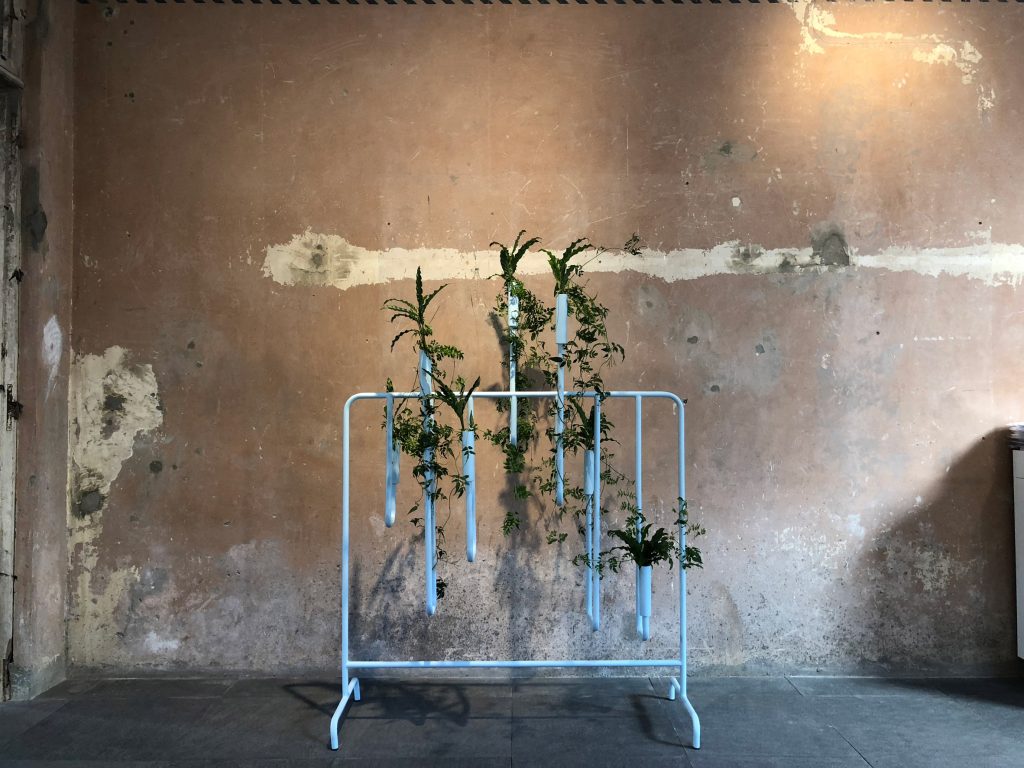
Holidays in the Sun by T Sakhi
Holidays in the Sun series features pieces of urban furniture made from repurposed security barriers that are given by the studio an alternative and more civic purpose. The design of the Barrier of Nature reinterprets the metal crowd-control barriers found throughout the city by incorporating planters into upturned sections of tubing.
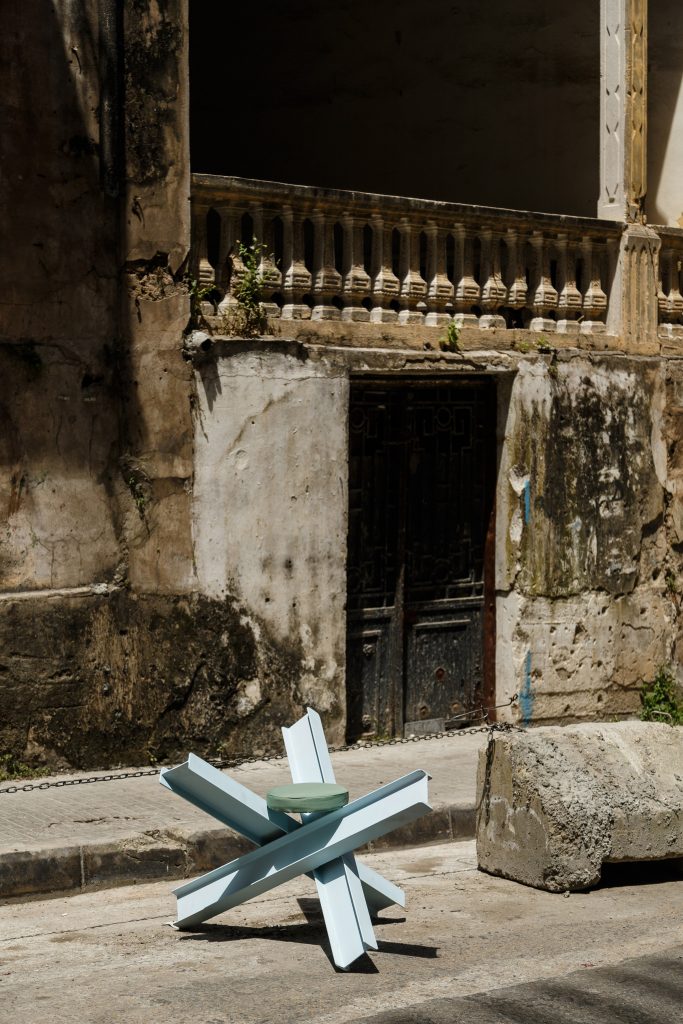
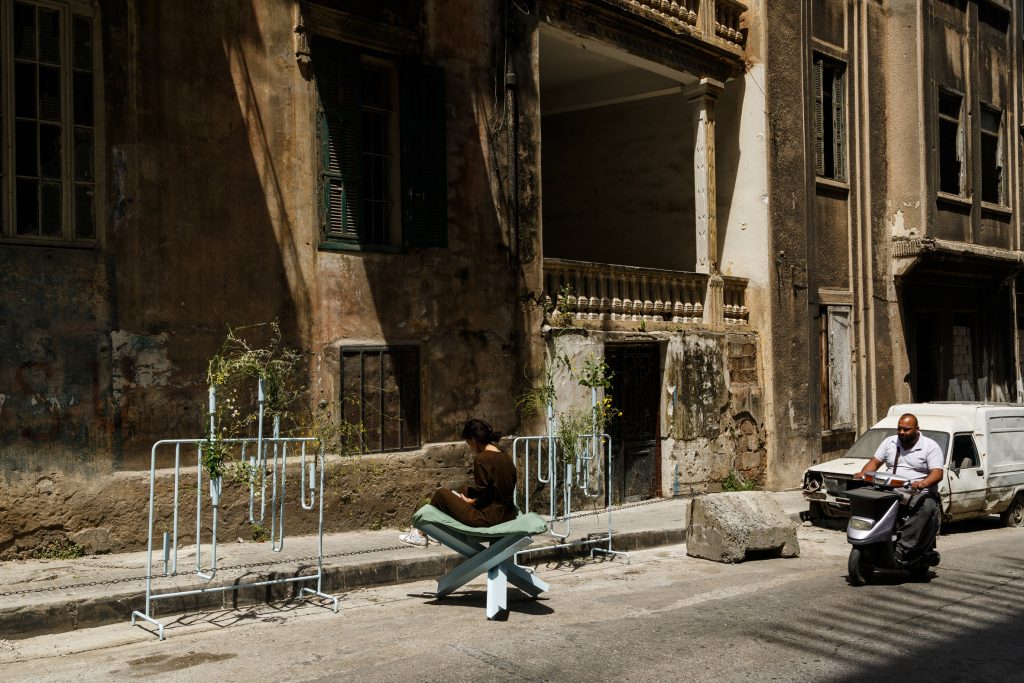
For the Barrier of Rest responding to the lack of seating areas in public spaces, the sisters acquired a permit to collect damaged security barricades, which are made from three interconnected steel beams and are known as Czech hedgehogs, from the streets and transform them into stools by adding sling-like fabric seats.
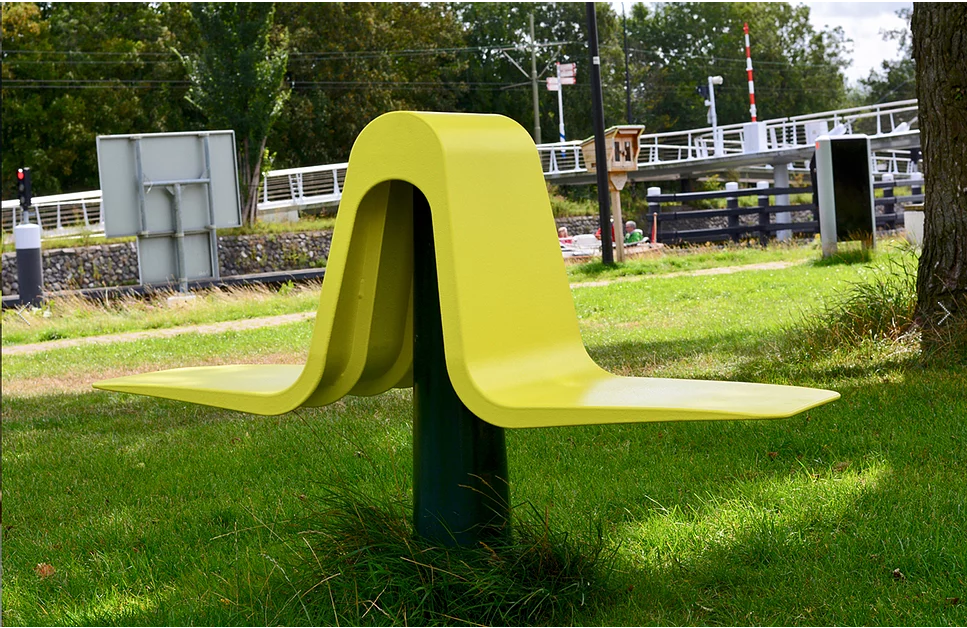
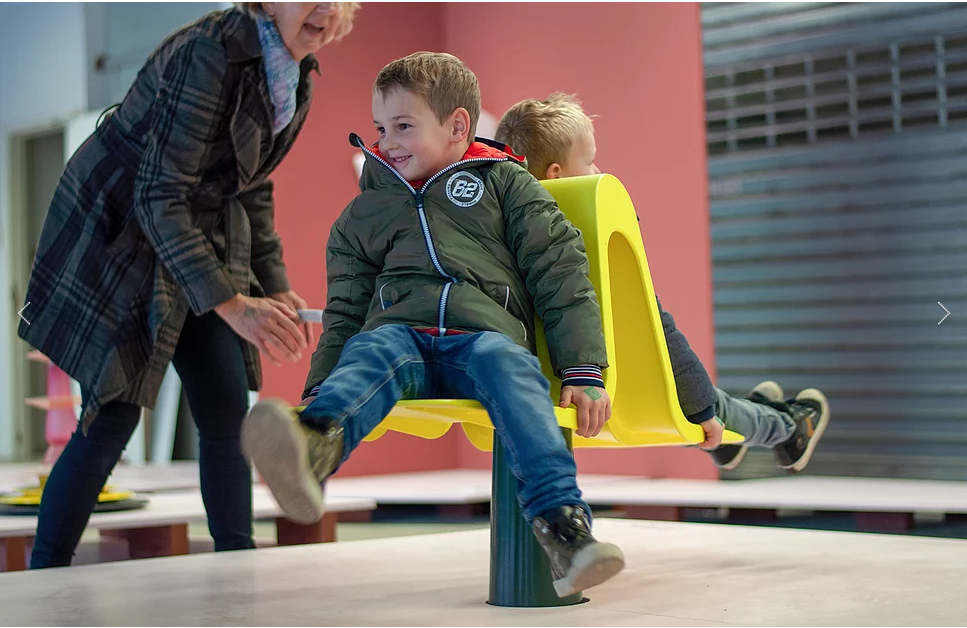
The Rocker by Beatriz Peró Giannini
Beatriz Peró Giannini, a Peruvian-Italian architect and designer based in Rotterdam, has developed a project that similarly emphasizes the importance of togetherness over separation in the urban space in this time of ever-increasing fear of others, when security bollards pop up in various high-risk public spaces to prevent terrorist attacks.
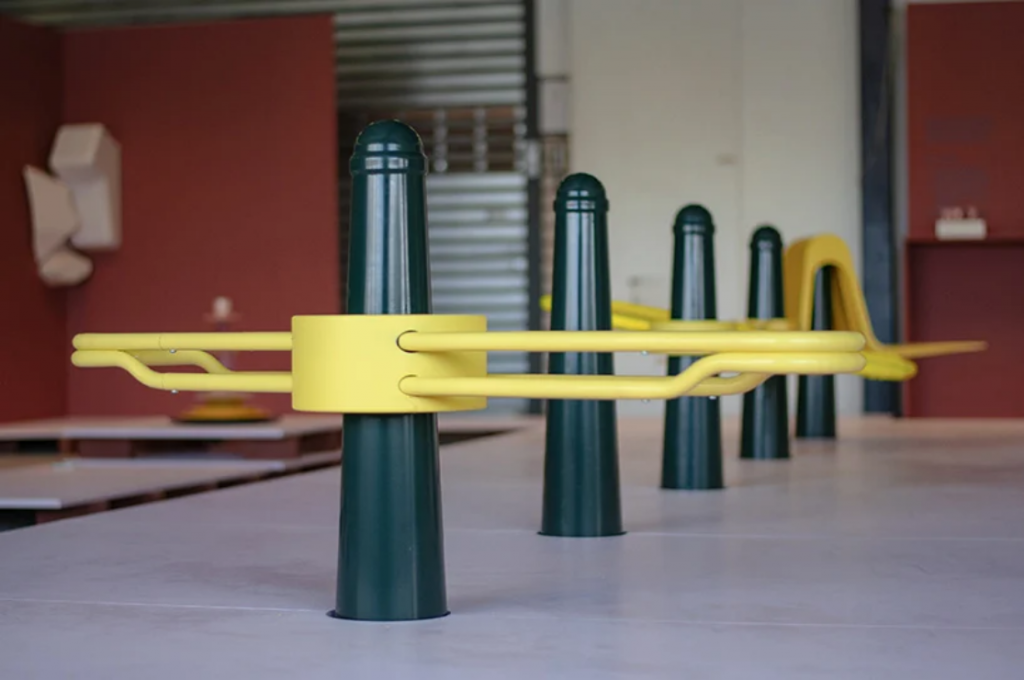
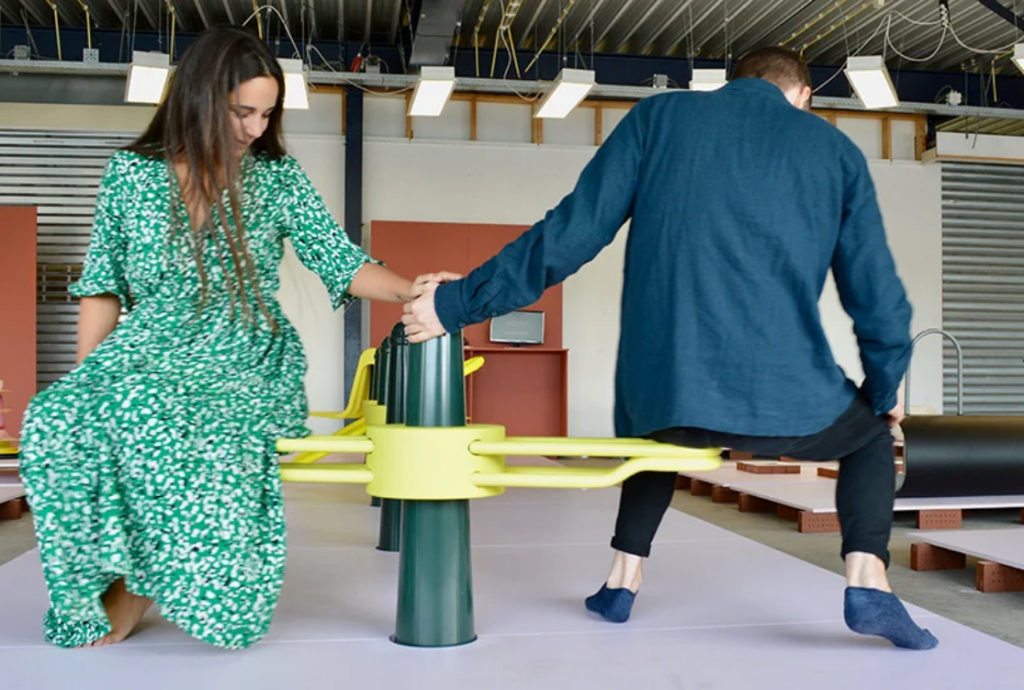
The Slider by Beatriz Peró Giannini
The Rocker, the Slider and the Wobbler is a series of furniture add-ons which are attached to the Amsterdammertjes – the typical steel bollards used to separate the sidewalk from the street in Amsterdam – to generate positive fleeting encounters between strangers and to foster trust and a sense of belonging. The design aims to expand the perception of the bollards from an urban necessity in today’s uncertain world to an active, engaging element of the public space that belongs to the people.
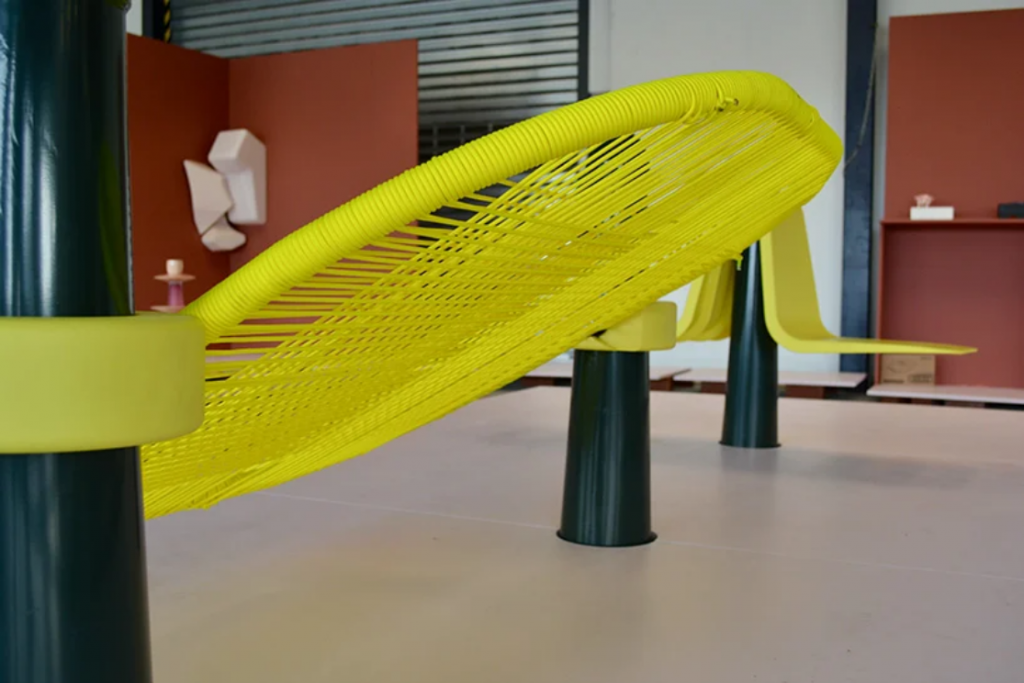
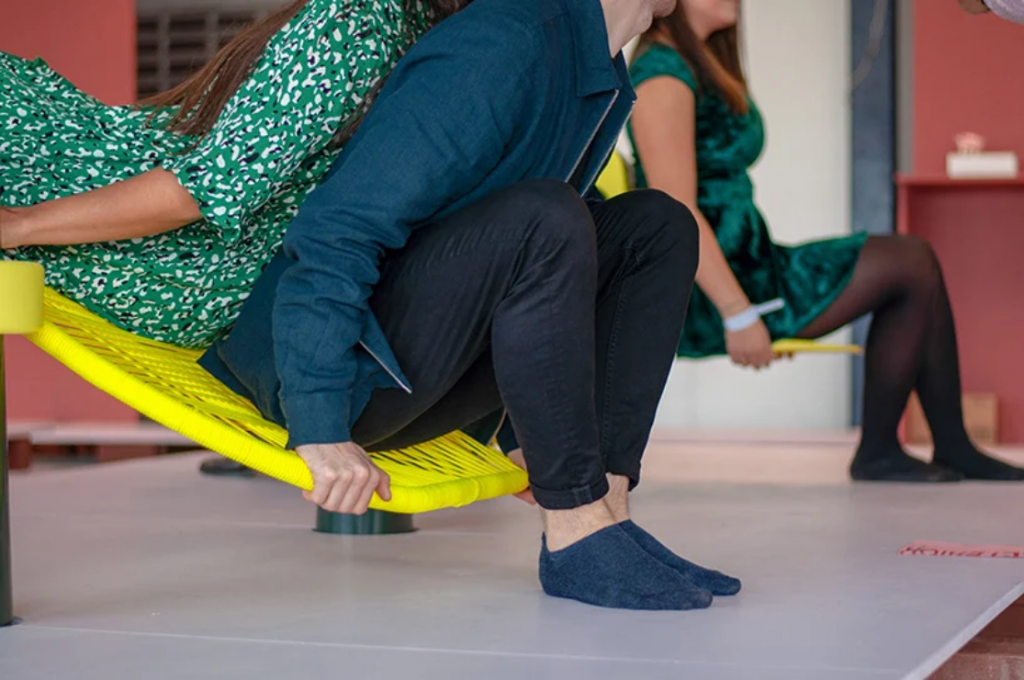
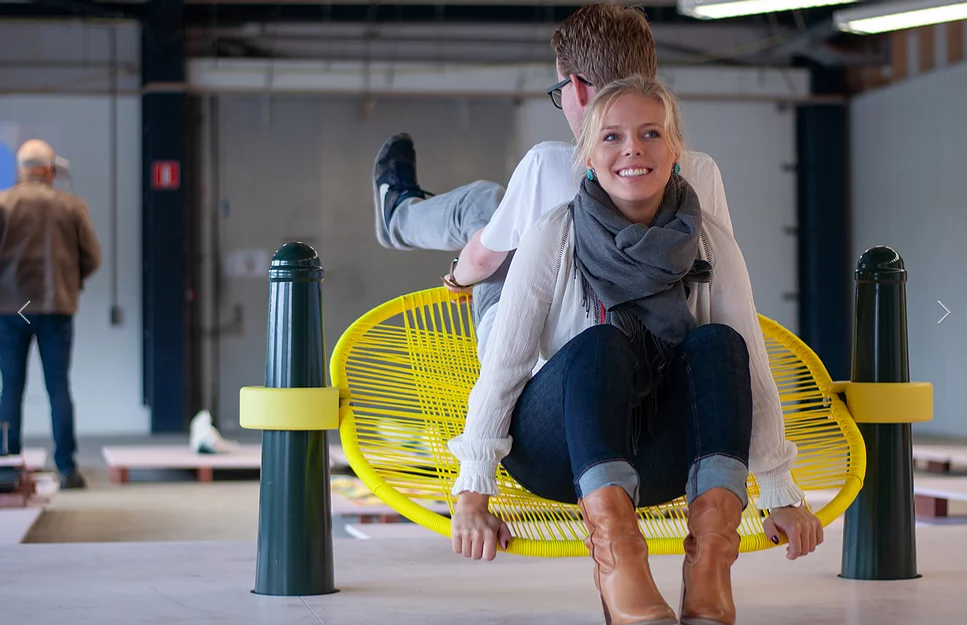
The Wobbler by Beatriz Peró Giannini
A critique on society’s diminishing urban interactions, the objects are only partially functional if used by one person. To function perfectly they need the collaboration of two people. The Rocker moves by rocking and rotating around the bollard encouraging the users to sit on either side of the chair to start the fun. The Slider slides from side to side of the bollard like a wave of relaxation, while the Wobbler recreates a seesaw motion between two posts with the users sitting back to back. By employing a clearly distinct language and a bright yellow color, the three objects are easily recognizable and intuitive to use.
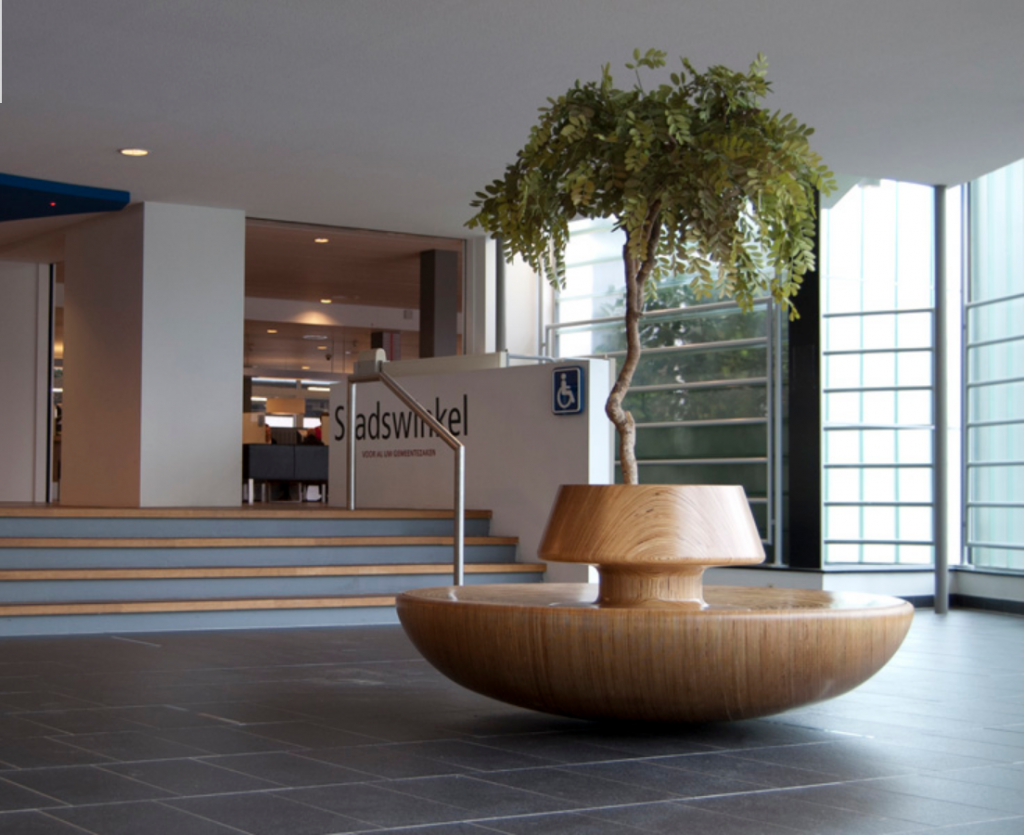
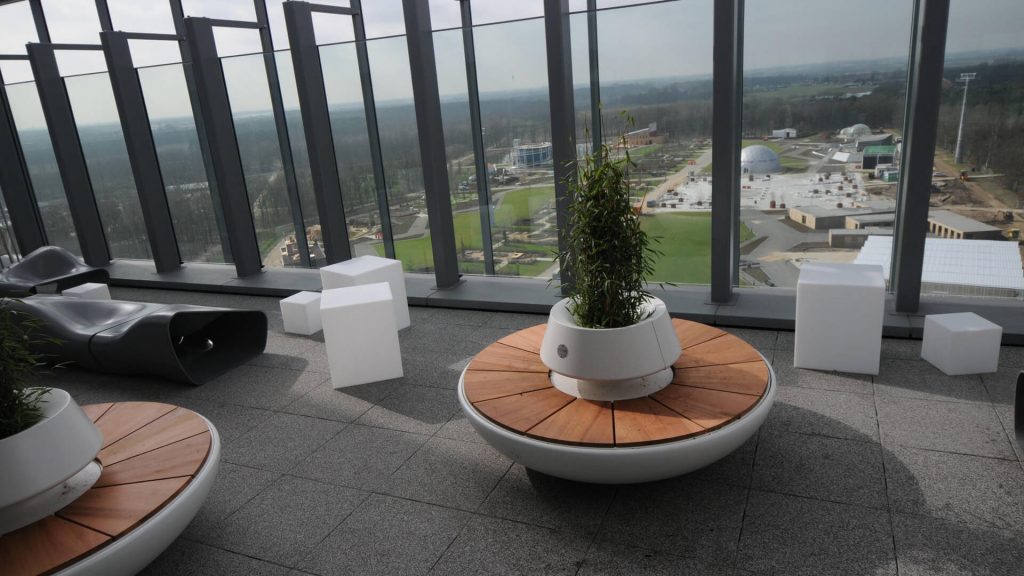
Chitchat by Teun Fleskens
When developing his Chitchat rocking bench, the Dutch designer Teun Fleskens aimed to turn waiting in public spaces into an experience full of fun and positive social interaction. The piece is made of wood or polyester and is designed to sit one to seven people.
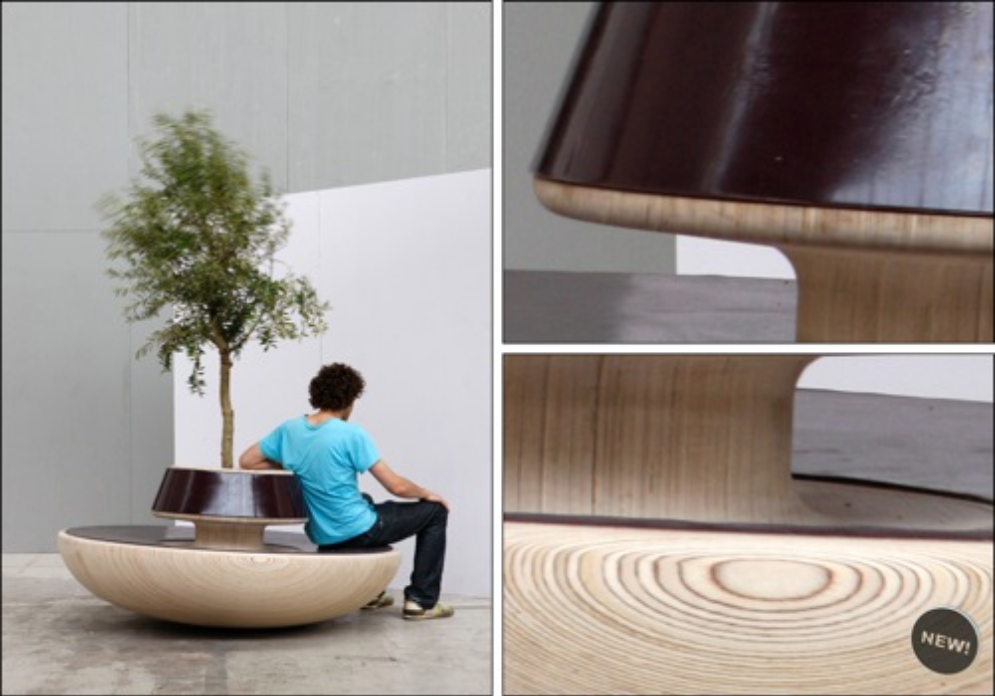
Chitchat by Teun Fleskens
If one takes a seat, they gently move the object, setting it and everyone who is on it in motion. The rocking amazes people and stimulates interaction with their neighbours, without violating the comfort zone because people are seated on a round bench. In this way, the bench encourages strangers to search the best balance together: the ice is broken and new contacts are created, which improves the atmosphere and makes the waiting less boring.